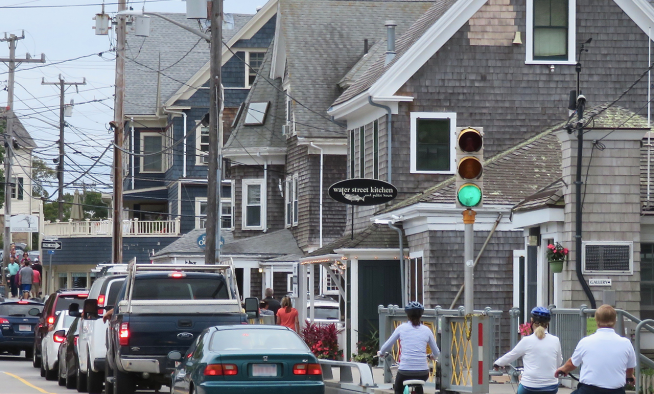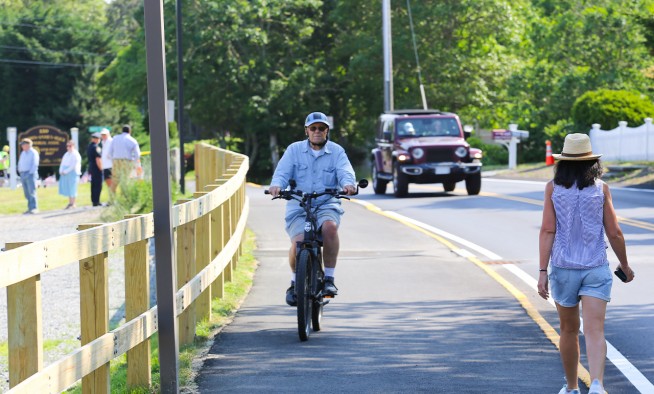Bridging Cape Cod's digital divide
High-speed internet. Reliable devices. Affordable service. For many Cape Codders, these basic tools for participating in the digital world remain out of reach. As everyday life becomes increasingly dependent on digital access — for work, education, healthcare, and civic engagement — ensuring that every resident can connect affordably and reliably is no longer optional. It is essential.
Digital equity is one of the top concerns for aging adults on Cape Cod, according to a study conducted by the Barnstable County Department of Health and Human Services. Digital equity means ensuring that everyone, regardless of age, income, geography, or background, has access to the internet, digital devices, and the knowledge and support needed to use them effectively.
“Digital equity is not just about access, it’s about opportunity,” said Mandi Speakman, Deputy Director of the Barnstable County Department of Health and Human Services. “Our post-pandemic evaluation underscores what many local service providers have long recognized: older adults across Cape Cod are disproportionately affected by the digital divide. Bridging this gap is critical to ensuring we can all age safely, stay socially connected, and access essential services in an increasingly online world.”
A digital equity plan provides a roadmap for closing this gap. These plans outline strategies to improve the affordability of devices and internet service, increase digital literacy, build trust in digital tools, and address language and cultural barriers that can make participation difficult or intimidating. In 2023, the Cape Cod Commission partnered with the towns of Barnstable, Bourne, Falmouth, Orleans, and Sandwich to develop such plans. Through surveys, public forums, and stakeholder engagement, residents identified challenges such as unreliable connectivity, high costs, and the lack of assistance with technology, especially for older adults and individuals living alone.
The planning process was funded by the Massachusetts Broadband Institute (MBI) as part of a statewide initiative to advance digital inclusion, particularly in light of disparities highlighted during the COVID-19 pandemic. Each town’s plan was shaped by input from local leaders, residents, service providers, and community organizations.
Now, with plans in place, attention has turned to implementation. All five towns that participated in the planning process have applied for or received grants to support local programs. These grants are helping launch initiatives such as digital navigation services, expanded public Wi-Fi access, and digital literacy training workshops tailored to community needs.
However, funding is more limited than originally anticipated, and the needs remain pressing. Many Cape Cod residents, including aging adults, low-income households, veterans, individuals with disabilities, non-English speakers, and rural residents, continue to face significant barriers to digital access. These groups were identified as priority populations in the federal Digital Equity Act of 2021 and remain at the forefront of local efforts.
Despite the funding challenges, momentum is growing. Across the region, organizations are working together to make meaningful progress. Healthy Aging Cape Cod has convened a Digital Equity Working Group, bringing together partners from the public and nonprofit sectors to coordinate strategies, share resources, and advocate for expanded support. The working group also serves as a hub helping to align efforts across towns and agencies. “As working group membership continues to expand, we are learning how to better leverage existing resources to expand the reach of local initiatives, such as Elder Services’ Senior Planet tech workshops and classes,” noted Laura Roskos, Healthy Aging Cape Cod co-chair and chair of the Digital Equity Working Group.
While the path forward is not without obstacles, the commitment to closing the digital divide on Cape Cod is strong. Local organizations, town governments, and regional coalitions are stepping up, not only to implement pilot programs, but to build the partnerships that will sustain long-term solutions. Through collaboration, Cape Cod communities are laying the foundation for a more inclusive digital future, one where everyone has the tools and support they need to fully participate in modern life.
Related Posts




